ANNUAL REPORT





When we committed to the Decade of Change in 2019 we knew we would have to build our power to create a movement capable of tackling the climate emergency, confronting environmental injustice, and protecting nature.
In 2021 we grew by 40%, a testament to the commitment of our membership and supporters in a time of great upheaval and global uncertainty due to the COVID-19 pandemic. I think we all felt that getting outside was more important than even during the pandemic, and this need was met by Wild Child and Hiking Hero initiatives.
As the pandemic continued in seemingless endless waves, it felt like so many of the issues we work together on needed to be kept top of mind and center of the political agenda. Whether it was shutting down coal fired electricity in Atlantic Canada or new rules for plastic pollution or stopping offshore drilling or safeguarding precious natural spaces: you kept up the pressure and prevented backsliding.
Thank you!
 Photo: TorontoBrickworksOntario LucyBain
Photo: TorontoBrickworksOntario LucyBain
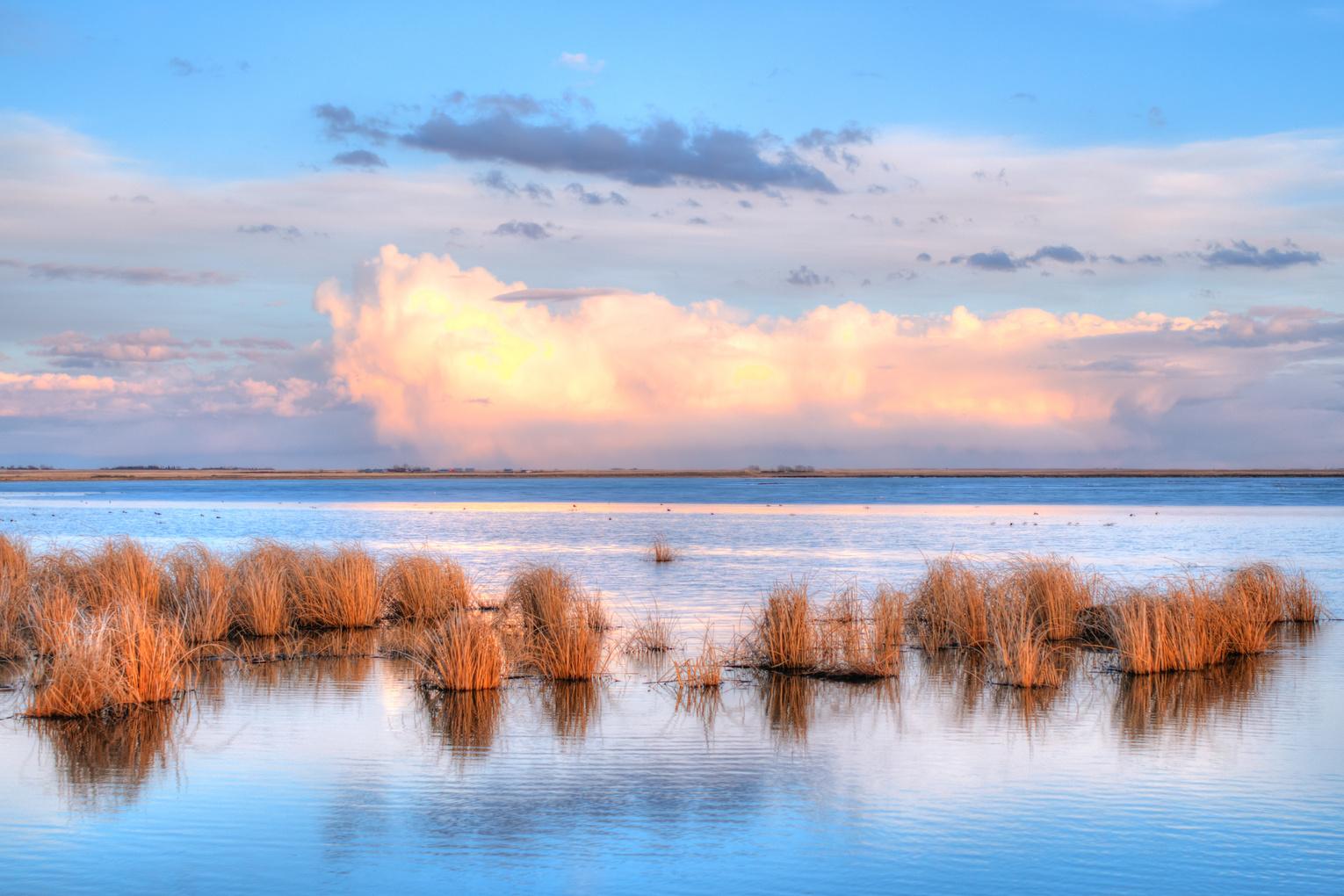
You are helping protect wetlands and wildlands in the Prairie region. Wetlands in Saskatchewan are hotspots for birds and other wildlife, as well as critical habitats for sequestering carbon. Unfortunately, water is being diverted across the Prairie Region. Meanwhile, climate change is creating major water-related stressors, including flooding and droughts. In 2021, we hosted a Town Hall and Conference Series to bring people together to talk about solutions to water issues such as farmland drainage, droughts, and floods.
The online sessions had 600+ attendees, bringing awareness to the need for a wetland policy in Saskatchewan
With a coalition of 12 groups, we coordinated a federal petition to address the environmental impacts of the Lake Diefenbaker Irrigation Projects
Photo: AlbertaPrairiewetlands Bgsmith/GettyImages/Canva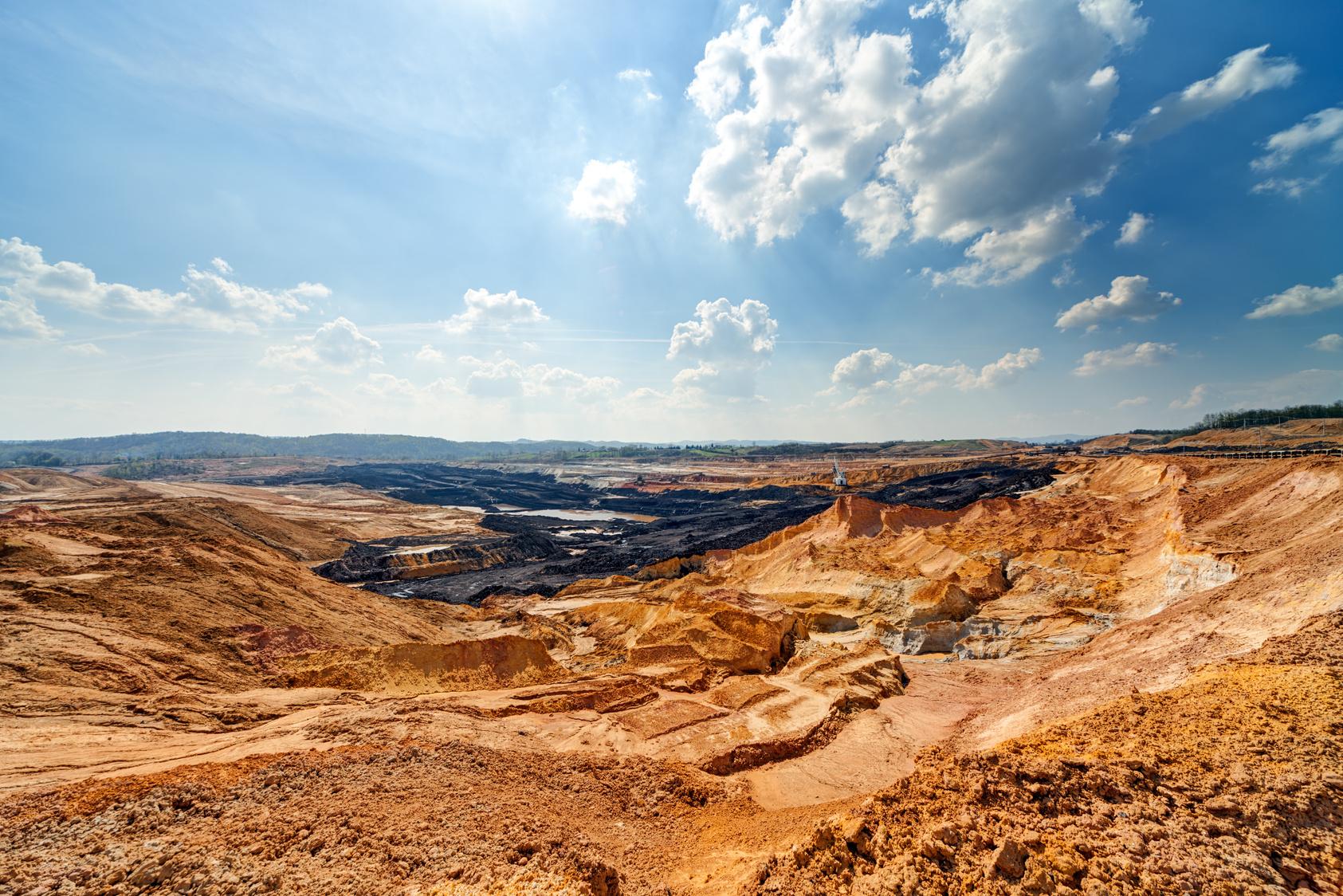
You helped protect the iconic Eastern Slopes of the Rockies from open-pit mining for coal. Not only is this metallurgical coal emit huge amounts of ghg emissions, mining threatened tens of thousands of alpine habitat critical to species like the grizzly bear and cutthroat trout, and precious water courses and critical areas around glaciers and rivers that provide clean drinking water for downstream communities, not only in Alberta but also in Saskatchewan and Manitoba.In June, we welcomed the rejection of the Grassy Mountain Coal Mine. Now more work needs to be done for Tent Ridge Mine and ultimately a land use policy to protect the Eastern Slopes.
900+ messages sent from our members and supporters to stop open pit coal mining in the Eastern Slopes
Photo: Openminingpit vladimir n/GettyImagesPro/Canva

Dr.JillBueddefeldisamemberandco-chairofthe
Prairie chapter's Executive Committee. In 2021, she orchestrated a nature-based community art installment for Nuit Blanche Winnipeg. During Nuit Blanche, residents were encouraged to participate in a community art project where they could help create an art piece using natural materials collected locally by Sierra Club Canada volunteers. She also co-hosted the Prairie chapter's online art program called Nature as Muse,andsecuredfundingforcorePrairiechapter programming.
 Photo: Jasper National Park Lindsay Boucher
Photo: Jasper National Park Lindsay Boucher
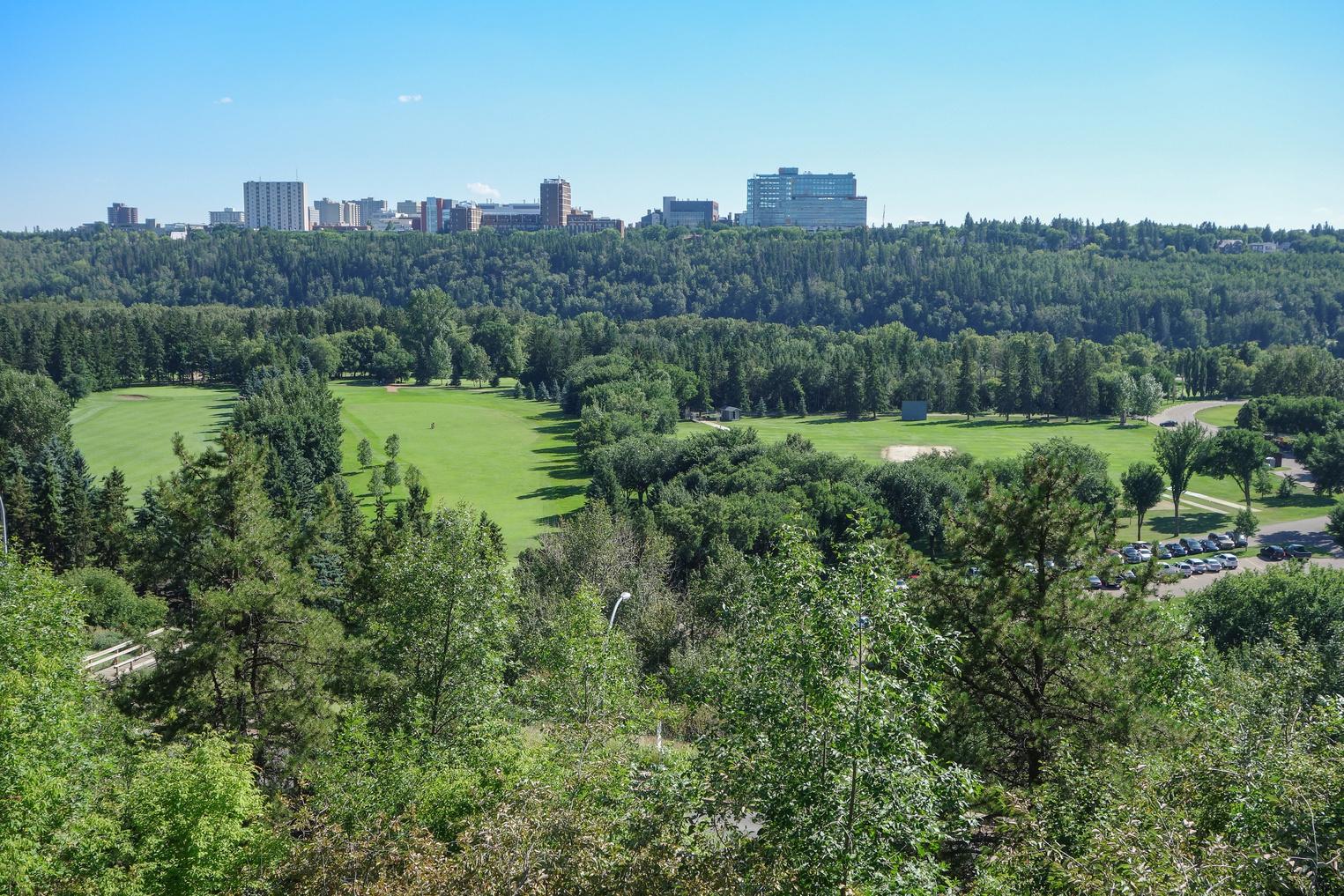
For over 20 years, Prairie Chapter members have pushed for greater protection of natural spaces in the Edmonton metropolitan region. In 2021, we celebrated the Alberta Government's signing the Memorandum of Understanding (MOU) to explore the protection of Big Island as a provincial park. These efforts echo those occurring in the Montreal and Southern Ontario regions to protect nature in urban and peri-urban settings. In 2021 the federal government committed $130.9 million to developing urban national parks and named Edmonton as a candidate city for a national urban park.
Organized and convened a meeting (April 2021) to discuss opportunities for a NUP in the Edmonton Metropolitan Region, attended by more than 30 guests from the City of Edmonton and surrounding municipalities, Confederacy of Treaty Six, Metis Nation of Alberta (Region 4), and various observers including Alberta Parks, Edmonton Metropolitan Regional Board, and the River Valley Alliance
Photo:Edmonton,Alberta alarico/GettyImages/Canva

Our Wild Child nature immersion and environmental education programing helped reach more kids than ever. Your support helped offer more spots to families who were unable to easily access natural spaces. We were also able to run our first summer program for gender-creative, trans, and non-binary kids! We continued our Pride ScOUTs, a free program for 12-14 year old youth that identify as part of the 2SLGBTQ+ community, and added in an Outdoor Leadership Program this year for older youth. Keep reading to learn about the impact across our Wild Child programs in PEI, Nova Scotia, and Edmonton.
 Photo: Wild Child PEI
Photo: Wild Child NS
Photo: Wild Child Edmonton
Photo: Wild Child PEI
Photo: Wild Child NS
Photo: Wild Child Edmonton

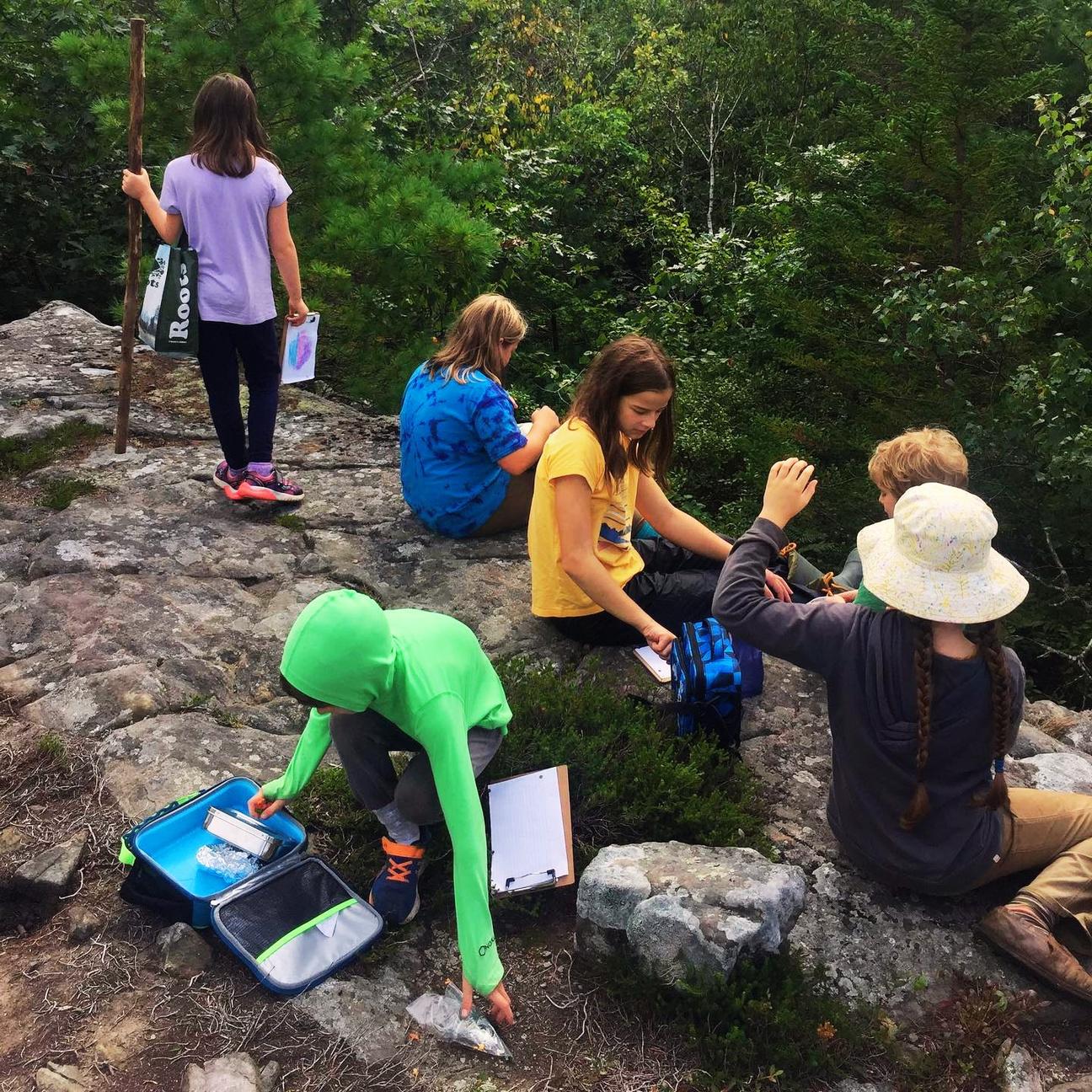

Artists-in-residence Renée Michaud and Laura Barron led the workshop.

As part of the workshop series, residents nationwide gathered virtually for 8 weeks to learn about and create poetry and visual art. Their creations were inspired by a walk in nature taken during the workshop or in the days leading up to it. 15+ participants created 100 poems, stories, and visual art pieces.
 Our Prairie chapter hosted Nature As Muse in early 2021, a nature-based poetry workshop to foster connections with nature and with community during some of the coldest and darkest months of the year.
Photo: Katharine Fletcher
Photo: Sabine Modder
Our Prairie chapter hosted Nature As Muse in early 2021, a nature-based poetry workshop to foster connections with nature and with community during some of the coldest and darkest months of the year.
Photo: Katharine Fletcher
Photo: Sabine Modder
David Snider and and the newly formed Friends of the Ginns Ecological Gift (FGEG) group fought the paving over of an ecologically significant area. The area (103 acres of ecologically sensitive land) was gifted to the municipality of Cantley in Quebec under Environment Canada’s Ecological Gift Program. The campaign highlights the lack of transparency and understanding regarding what an ecological gift of land truly means -- and the need for our members to be on the ground to make sure what’s given in the spirit of protecting nature remains intact.

In November 2021, FGEG convinced
development in the form of a parking lot
30+ Cantley residents signed an open letter to council opposing development to the Ginns Eco-Park Cantley councillors to oppose Photo : Ginns Eco-Park Michael RosenOver 30 volunteer leaders took part in our annual Hiking Hero event, which encourages people to get out to enjoy and explore local natural spaces and spend time together in nature.

In conjunction with the Canadian Federation, Canadian Whale I IFAW, The Pew Charitable Oceans North, and HitPlayProd we supported the international la the Last of the Right Whale Film. premiered at the Calgary Inter Film Festival. We held several in screenings across Canada, i Montreal and New Brunswick.
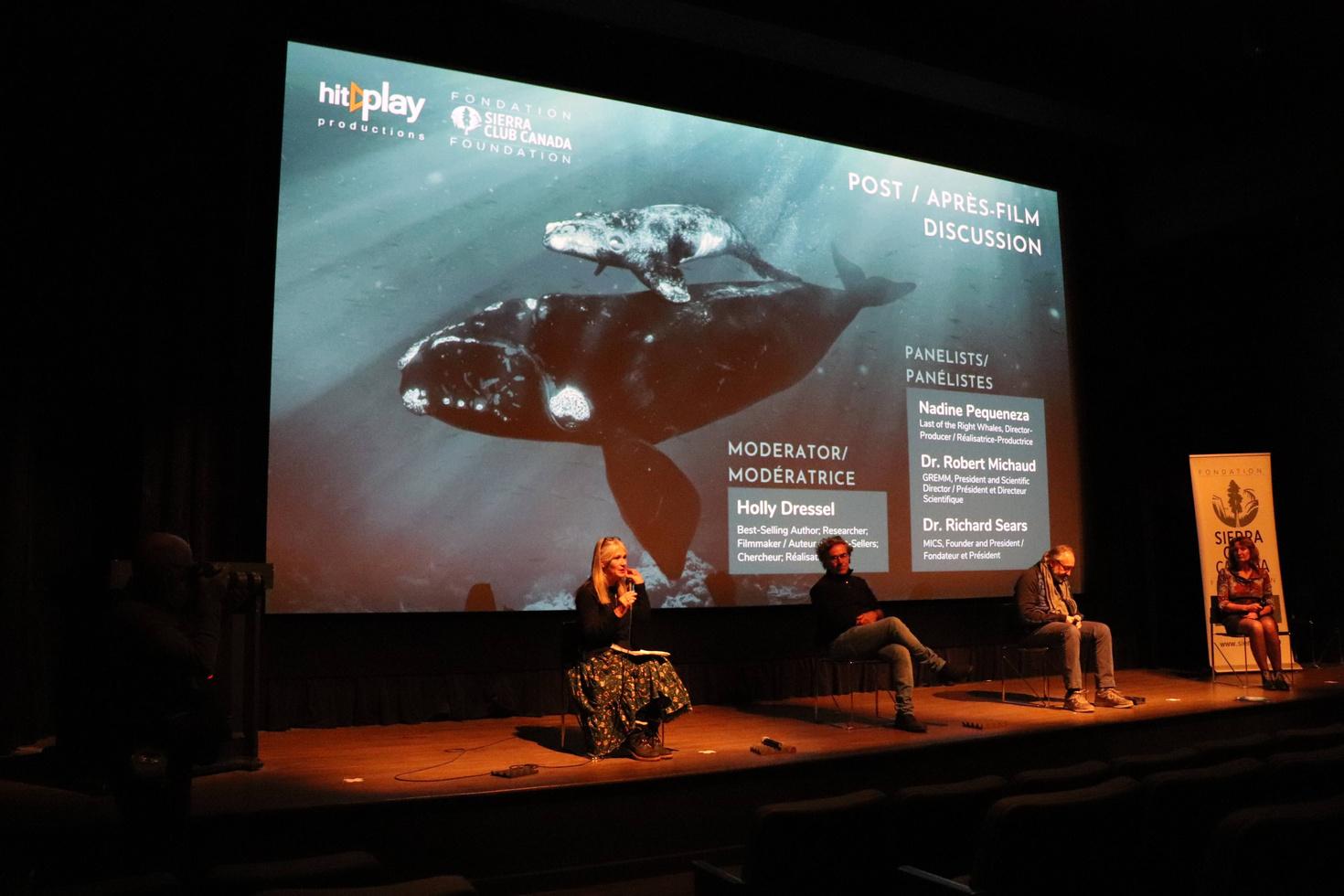
2021 through our Marine Mammals ogram, we advocated for action to otect the last remaining North Atlantic Right Whales.
 Photo:NorthAtlanticRightWhale foto4440/GettyImages/Canva
Photo:LastofTheRightWhalesPanelDiscussion SimonL'Allier
Photo:NorthAtlanticRightWhale foto4440/GettyImages/Canva
Photo:LastofTheRightWhalesPanelDiscussion SimonL'Allier

"We- Sierra Club Quebec volunteer Donald Hobus
 Photo: FOTOKITA/Getty Images/Canva
Photo: FOTOKITA/Getty Images/Canva
Canadians dispose of ~3.3 million tonnes of plastic every year. Perhaps no single issue is more emblematic of overconsumption than the plastics pollution problem. In 2021, we launched the Problem with Plastics Project with the goal of bringing awareness and action on plastic issues in Canada. We worked with allies during a Plastic Day of Action to call out the plastics industry. You helped stop plastic waste and damage to wildlife and the environment by acting to reduce your plastic use and pushing for policies to ban unnecessary plastic waste and requiring plastic producers to be responsible for the products they create.
165 participants in Plastic Free July
804 people signed our petition to ban unnecessary single use plastics
With the #PlasticFreeJuly hashtag, we generated 10,000 tweets and trended on Twitter in Canada. We made sure to let NOVA Chemicals, Dow Chemical and Imperial Oil/ExxonMobil how we felt about their #trashytactics.
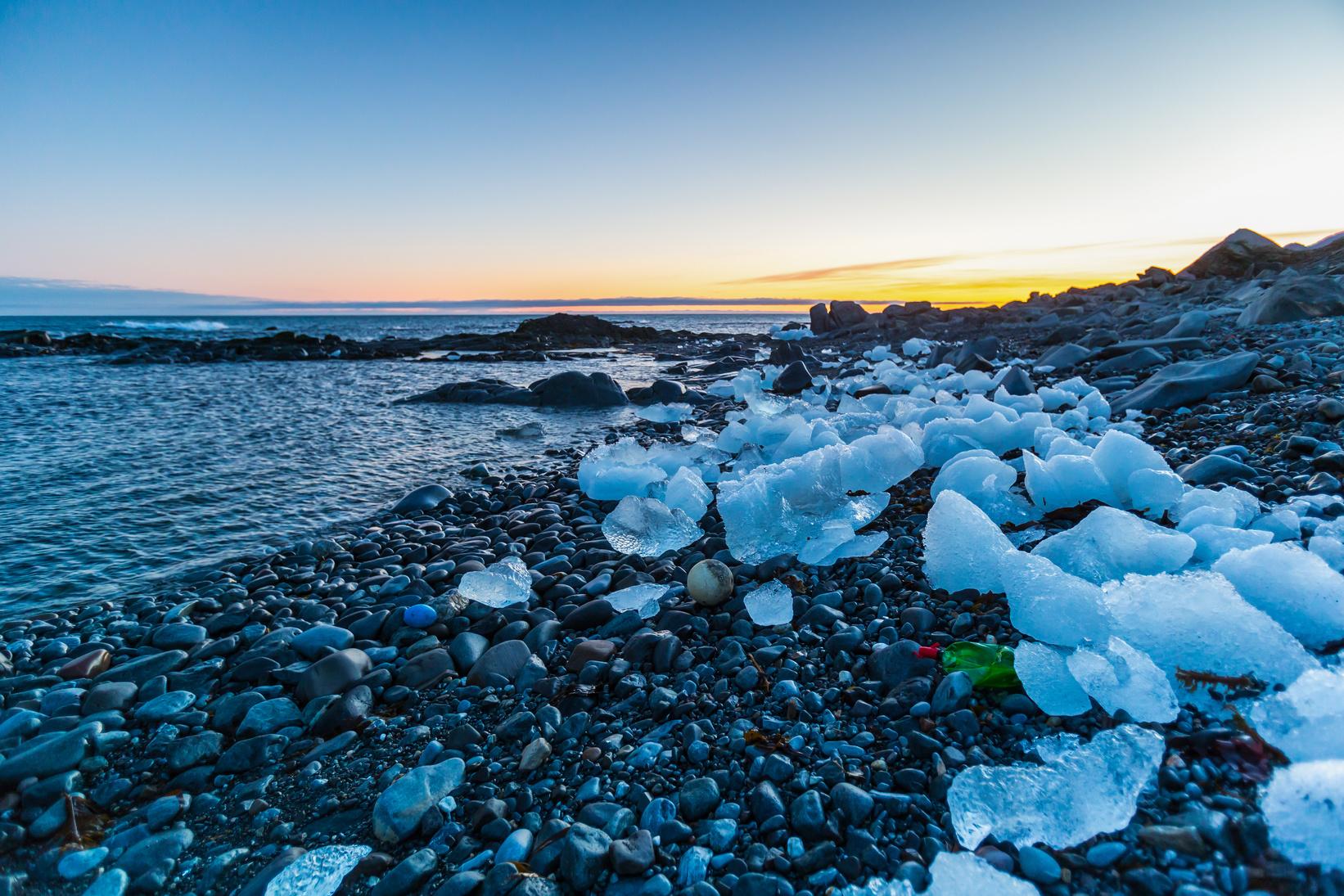 Photo: Plastic pollution sodar99/ Getty Images Pro/Canva
Photo: Plastic pollution sodar99/ Getty Images Pro/Canva
 Photo: seagul/pixabay/Canva
Photo: seagul/pixabay/Canva
The Beyond Coal campaign created bold proposals to create clean energy and healthy communities in Atlantic Canada. Its Beyond Climate Promises report was a call to action that sets out clear, achievable goals for reducing GHG emissions, accelerating the transition to clean renewable energy, improving energy efficiency, and protecting the province’s forests and biodiversity. The report and its uptake by media and government ensured Nova Scotia accelerated its legislated timeline to get off coal from 2040 to 2030.
We received coverage in The Guardian and Globe and Mail Major on the issue of forest biomass
90+ organizations and community leaders signed a letter opposing the construction of the Gull Island Mega Dam in Labrador
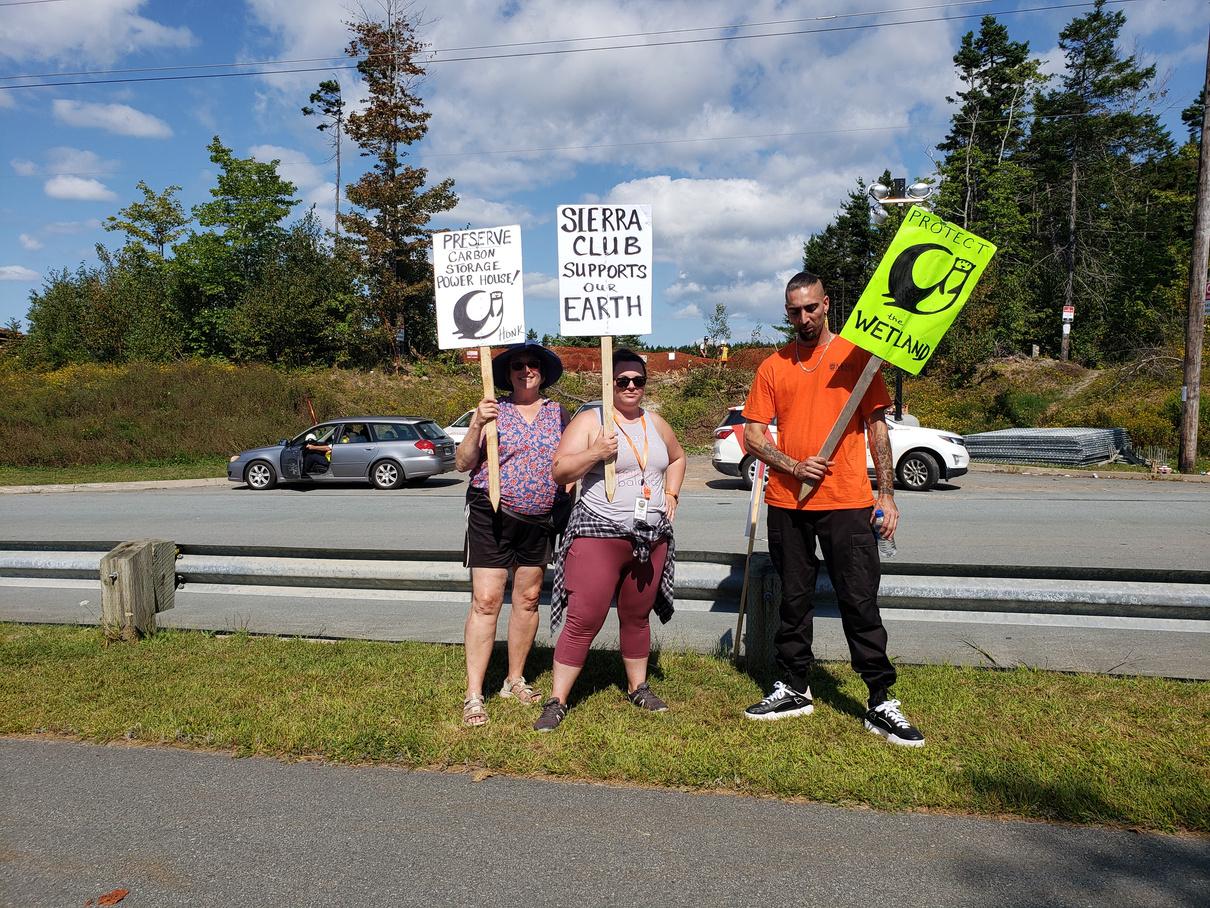 Photo: Oshean Juneja
Photo: Oshean Juneja
Air pollution is a silent killer, yet few people are aware of the quality of the air they breathe. Our Ottawa-based Breathe Easy citizen science and education program aims to tackle the problem of air pollution by putting the power of knowledge of air quality - and the means to improve it - in the hands of citizens and youth. In 2021, we continued to build relationships with community partners and advocated for increased funding for air quality initiatives in Ottawa’s city budget. We also made engagement with youth and schools a priority, as young people’s growing lungs are extremely vulnerable to poor air quality.
 40 volunteers contributed over 900 hours to the project as both ambassadors and air quality samplers
Educated 50+ grade and high school students
Hosted 2 webinars featuring experts on air pollution
Photo: Air quality sampling Christine Earnshaw
40 volunteers contributed over 900 hours to the project as both ambassadors and air quality samplers
Educated 50+ grade and high school students
Hosted 2 webinars featuring experts on air pollution
Photo: Air quality sampling Christine Earnshaw
Expanding offshore oil and gas off Canada’s East Coast will make safe climate targets unreachable and threatens ocean life, particularly endangered whales. You stood by us when the federal Minister of Environment and Climate Change created a regulation based on a deeply flawed impact assessment process to make exploration drilling even easier for oil companies than it already is - which given our captured regulatory regime, is far too easy already. The stakes are very high for this case and 100 new exploration wells are anticipated in the region covered by the regulation, which also contains deep sea life and endangered whales that would be decimated if an uncontrolled oil spill occurred.
 Photo:Oilplatform/Photocreo/Canva
Photo:Oilplatform/Photocreo/Canva
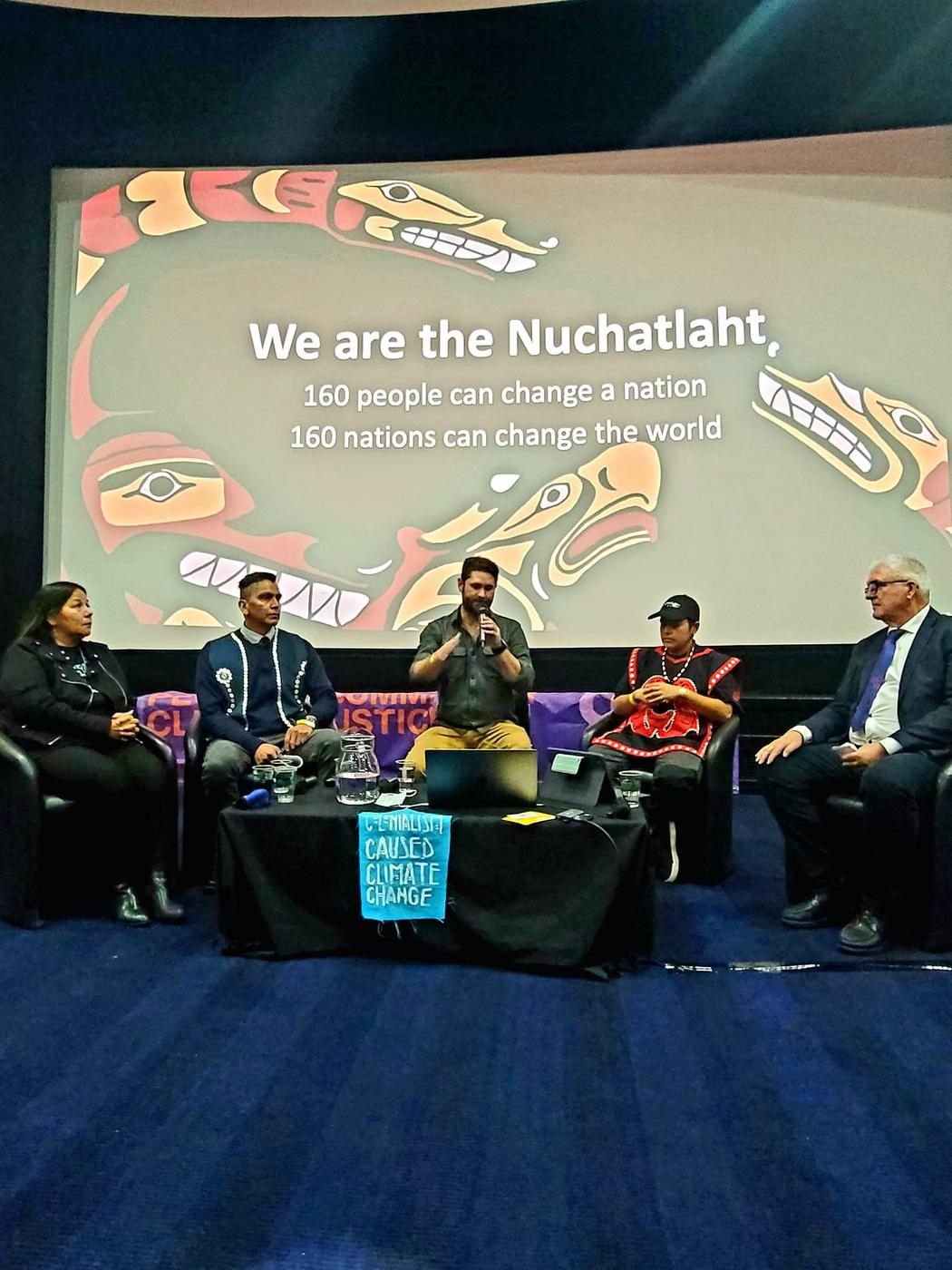
We sent representatives to COP26 as part of a contingent including the Sierra Club of BC and Nuchatlaht First Nation. We amplified the voices of other groups who share our concerns about the threat of climate change. Members of our group met with the Federal Environment Minister to advocate for old growth forest protection and to amplify Indigenous climate solutions. Outside the COP26 grounds, we hosted a presentation highlighting the Nuchatlaht First Nation’s fight to protect salmon and old growth forest in their territory. We participated in marches and demonstrations held in Glasgow and the COP26 grounds, alongside tens of thousands of likeminded people.
Held 5 interviews with Canadian and international media and published 2 articles Hosted an anti-liquified natural gas protest with the Sierra Club USA and Friends of the Earth Japan
Photo: Nuchatlaht presentation at COP Owen Stewart
The Ring of Fire is a 5,100 square kilometer region situated in Northwestern Ontario. It is rich in mineral deposits and biodiversity essential to Indigenous nations, economy, and culture. The area is under intense pressure from industrial development. First Nations leaders have called for a moratorium on mining in the area to ensure adequate consultation and Indigenous rights are upheld before mining begins. Working with Joe Duncan -- a member of the Muskrat Dam First Nation, located in the Nishnawbe Aski Nation (NAN) in Northern Ontario -- we interviewed members of the community to find out how mining developments will impact their communities.

87.5% of participants did not support the project
> 70% of participants were not informed or consulted
Residents were skeptical that governments would listen to rights holders in a way that would change how the project proceeds
Photo: Mine TomThe Atlantic Chapter hosted the Decolonizing Book Club, guided by Mi’kmaw educator Chris George from the Eel River Bar First Nation. A doctoral student at the University of New Brunswick, his research focuses on Indigenous cultural and political resurgence. The club covered three books (Whose Land Is It Anyway: A Manual for Decolonization, Unsettling Canada, and The Reconciliation Manifesto) over the course of the summer and fall. The online book club included participants from around the Maritimes.
 Photo:Photocreo/Canva
Photo:Photocreo/Canva
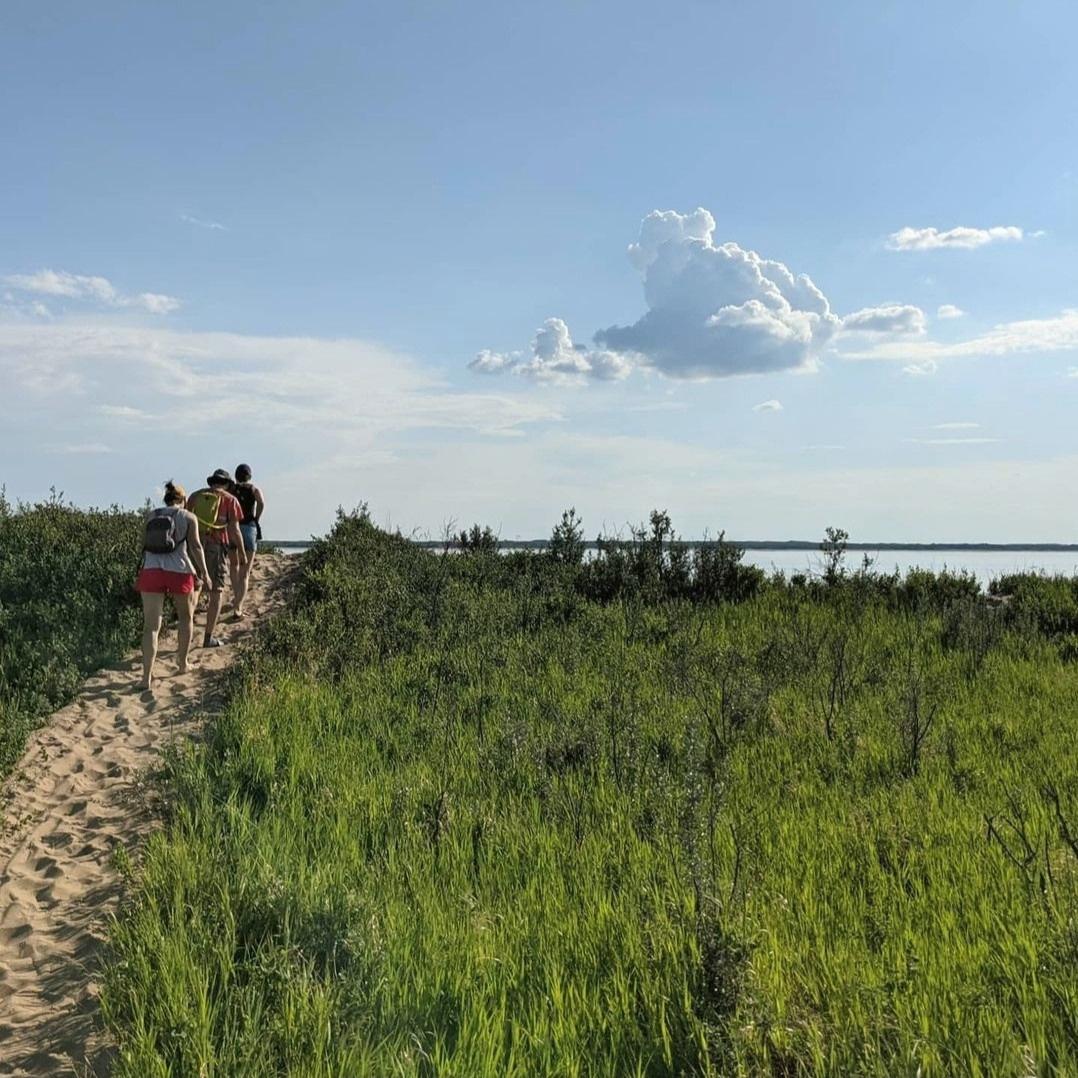 Photo: Hiking Hero
Jared Wolfe
Photo: Hiking Hero
Jared Wolfe
 Photo: British Columbia/ ArtTower/pixabay/Canva
Photo: British Columbia/ ArtTower/pixabay/Canva





Animal Welfare Foundation of Canada
Calgary Foundation
Canadian Online Giving Foundation
Canadian Parks and Wilderness Society
Canadian Tire Jumpstart Charities
Charitable Impact Foundation
Cidel Trust Company
City of Halifax
Clean Foundation
Cole Harbour Parks and Trails Association
ECHO Foundation
ECO Canada

Government of Canada
Jewish Community Foundation of Montreal
Morris & Rosalind Goodman Family Fund
N. A. Taylor Foundation
NEOCON Inc.
New Roots Herbal
Orchestre de L'Agora
Phil Lind Foundation
Province of Prince Edward Island
Sisters of Charity of the Immaculate Conception
St. Louis Community Foundation
Strategic Charitable Giving Foundation
The Asper Foundation
The Peggy and Paul Schachter Family Foundation
The Winnipeg Foundation
UK Online Giving Foundation
Valleywest Landscaping
WCPD Foundation
Julie Reimer | President & Atlantic Canada Director
Jennifer Baker | Vice President & Director at Large
Emily Heinrich | Treasurer & Director
Juliet Rennick | Secretary & Director
Femisola Aiyeleso | Youth Director
Isabelle-Anne Bisson | Quebec Director
Emily Boucher | Ontario Director
Ole Hendrickson | Director at Large
Saher Lalani | Director at Large
Erin Luther | Director at Large
Lauren Scott | Director at Large
Bo Simago | Director at Large
Owen Stewart | BC Director
Jared Wolfe | Prairie Director


Donald Hobus supported the Sierra Club Canada Foundation's Quebec chapter for over three decades. Additionally, he actively volunteered with local initiatives such as Technoparc Oiseaux and regularly participated in bird inventories in his free time. In 2019, he received the Green Coalition Award to honor his lifetime involvement in the environmental movement. Over the years, Donald tirelessly advocated for environmental protections. Notably, he helped secure the protection of the falaise Saint-Jacques, a 4-km long wooded area that will now be part of a new nature park. Additionally, he advocated to save the St. Pierre River in 2018 and against a new housing development in 2015, which is now conserved via the Grand parc de l’Ouest.

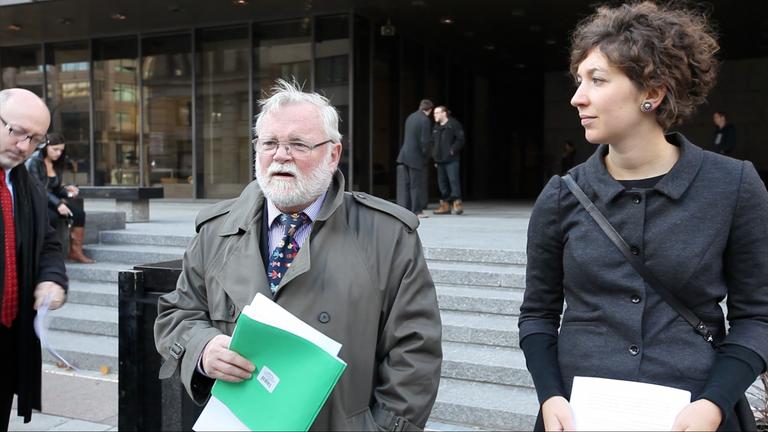 Photo: Louise Legault
Photo: Louise Legault

